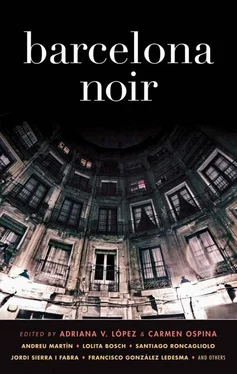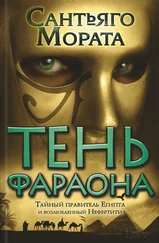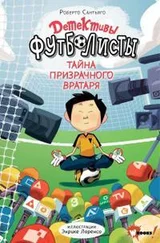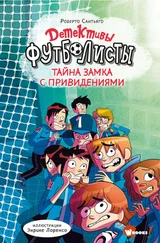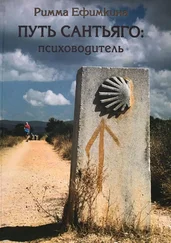Сантьяго Ронкальоло - Barcelona Noir
Здесь есть возможность читать онлайн «Сантьяго Ронкальоло - Barcelona Noir» весь текст электронной книги совершенно бесплатно (целиком полную версию без сокращений). В некоторых случаях можно слушать аудио, скачать через торрент в формате fb2 и присутствует краткое содержание. Город: New York, Год выпуска: 2011, ISBN: 2011, Издательство: Akashic Books, Жанр: Детектив, на английском языке. Описание произведения, (предисловие) а так же отзывы посетителей доступны на портале библиотеки ЛибКат.
- Название:Barcelona Noir
- Автор:
- Издательство:Akashic Books
- Жанр:
- Год:2011
- Город:New York
- ISBN:978-1-936070-95-4
- Рейтинг книги:5 / 5. Голосов: 1
-
Избранное:Добавить в избранное
- Отзывы:
-
Ваша оценка:
- 100
- 1
- 2
- 3
- 4
- 5
Barcelona Noir: краткое содержание, описание и аннотация
Предлагаем к чтению аннотацию, описание, краткое содержание или предисловие (зависит от того, что написал сам автор книги «Barcelona Noir»). Если вы не нашли необходимую информацию о книге — напишите в комментариях, мы постараемся отыскать её.
Barcelona Noir — читать онлайн бесплатно полную книгу (весь текст) целиком
Ниже представлен текст книги, разбитый по страницам. Система сохранения места последней прочитанной страницы, позволяет с удобством читать онлайн бесплатно книгу «Barcelona Noir», без необходимости каждый раз заново искать на чём Вы остановились. Поставьте закладку, и сможете в любой момент перейти на страницу, на которой закончили чтение.
Интервал:
Закладка:
While crossing a patch of grass, the man in black suddenly tripped and fell, taking the cash box and Jiménez with him. The fake worker tried to help him and they all ended up on the ground. The man in the felt hat managed an epileptic leap and kept running. But the guy who’d been in the cabin stopped, turned around, and helped the fallen. The man in black was hurt and limped, and the guy dressed as a worker helped him along. Jiménez ran with difficulty under the weight of the trunk. Clearly confused and ashamed for having fled, the man with the felt hat, who got to the taxi first, demonstrated his impatience with a gesture that was worthless at this point.
The guy who’d jumped from the cabin, who was young and energetic, planted himself among the tomatoes, firing his gun, covering his friends’ escape, until he fell helplessly between the lettuce heads.
By then, the others had reached the taxi and were climbing clumsily inside, five men and a trunk in what was designed for four, and one was hurt and howling. They piled up on each other, freaked out. “Fuck — let’s go already!” And another voice, quavering, asked, “What about El Quero? Where’s El Quero?” And another barked, “Fuck — they killed El Quero!” The treasure chest, metallic and secured with a thick lock, had the distinctive seal of the Aixelá security company.
“Let’s go, let’s go, let’s go! Follow the creek to the highway to France!”
Tino had already started the poor car. They chugged along on the uneven ground, rocks popping against the Studebaker’s underside, until they reached the highway.
“Turn right! Go back to Barcelona!”
Tino obeyed.
A captain with the civil guard was crossing the street and noticed the white car packed with troublemakers; it was stained with a red liquid, an alarming red like the color of blood.
They quickly guided Tino to Marina Street, where the man in the felt hat got out.
“Take me to María’s house,” moaned the injured man in black.
They continued to the city center, Plaza de Cataluña and its rounds, where the medieval walls used to stand and where the sentries kept watch.
“This way!”
They headed down Cera Street, which for many years had been a gypsy enclave in the city, and then reached Plaza Pedró, which still looks like it did in the ’20s. Those walls, those sidewalks, those corners, those balconies with laundry on the line, all persist as if history was frozen in a static photograph.
That’s where the trip ended. The man in the derby and the man disguised as a worker helped the man in black out of the car. They walked off in the direction of Botella Street.
Jiménez carried the cash box on his shoulder. He didn’t seem too worried that he’d be seen with it. He moved down Carmen Street and turned at the first intersection.
The meter said forty-seven pesetas, which nobody paid.
Tino put the Studebaker in gear, and minutes later he was on Las Ramblas, always noisy, colorful, and jubilant, with its florists, the Boqueria Market, café terraces, and, at the end, Columbus’s statue. Soon, he lost track of time and space.
He realized they’d pushed him into the furious war between the anarchist union, CNT, and the employers’ union, which was called El Libre. But he’d been dragged into the wrong side — while the murders committed by El Libre had impunity, and were supported and protected by Arlegui, the chief of police, and all the powers in the city, Tino was sure that the men who’d assaulted the train would be viciously persecuted and most likely exterminated. And he had been an indispensable accomplice.
He didn’t stop for his noontime meal. He arrived home midafternoon, left the car in Paco the Nut’s garage, and went up to his place where his wife Elena was waiting for him and who started crying immediately when he told her what had happened.
“What will we do?” she asked. “What will we do?”
Tino made a decision. “I’ll go to the police.”
The captain from the civil guard who’d seen the white car and its red stain had immediately contacted the authorities, even before he found out there had been a train robbery.
Before noon, the police were already looking for the vehicle in question. Back then in Barcelona, there were no more than twenty-five thousand cars, most of them domestic. Foreign cars were rare, and American cars even more so, because they demanded a high level of purchasing power. A white Studebaker wasn’t that hard to find. At sunset, when two undercover officers arrived at Paco the Nut’s garage, the engine was still warm and nobody had cleaned the blood off the chassis. The mechanic told them the car belonged to Constantino Orté, who lived on Venus, between Liberty and Danger streets.
When the two inspectors got to his house, Tino Orté was just leaving, dressed in his best suit, and on his way to cooperate with the law.
They detained him.
“We’ll talk down at headquarters,” they told him.
They took him to the sinister building on Via Laietana, headquarters for the Barcelona police since the world began. In those years, it was a commercial avenue, perfumed by sea air. The building was a big black stain which distinguished itself by being set wrong, to the side, so as to break up the street’s straight line.
Police Chief Arlegui came to see him personally. Those who knew the man said he had eyes colored by malice. He was the guy who’d come up with the Law of Escape. He’d planned a couple of attempts on the life of Martínez Anido, the civil governor, just so he could pin it on the anarchists and attack them accordingly.
“Three dead and at least three injured,” he told Tino. “Forty thousand pesetas stolen. The worst act of vandalism ever perpetuated in this city. Do you think we’re going to let you get away with that?”
Tino began to say he had nothing to do with those thieves, but the cops reminded him that his father had been such a dangerous anarchist that he’d been killed while committing a crime against the state. It also struck them as very suspicious that the car wasn’t registered in Tino’s name.
“Did you think that we’d never figure out it was you?” Arlegui laughed. He asked him who his accomplices were. The names Tino had heard during the doomed adventure echoed in his brain: Manuel, Jiménez, El Quero, María .
They beat him.
So he sealed his lips. He was muzzled by an irrational and suicidal fury. He shook his head and turned away when they showed him photos of the suspects. He refused to indentify even El Quero, the one who’d jumped from the machinist’s cabin and then fell dead on the battlefield. He didn’t blink when they showed him a photo of the man in the derby, nor the man in the felt hat, nor the guy called Jiménez, nor the man disguised as a worker, nor the one in black who’d been injured.
At dawn, the cops lost their patience and really let him have it. They broke the fingers on his right hand, they kicked him in the groin. His stubbornness convinced them that he’d voluntarily participated in the assault. When they threw him into a basement cell, his shirt was soaked with blood and his face was disfigured.
Sometime later, the police arrested two men who’d hidden the thieves, and the doctor who’d helped the man in black, and the railroad company employee who’d provided the details for the robbery, but they never found the loot. It’s said that the man in black, who was named Recasens, was tried in France years later on assault charges and guillotined.
They say the money ended up with a guy named Ramón Arín, who chaired the CNT’s Committee for Prisoners.
Tino’s cell door opened and he raised his swollen eyes to the light.
“Get up,” they said. “We’re taking you to the Modelo.”
Читать дальшеИнтервал:
Закладка:
Похожие книги на «Barcelona Noir»
Представляем Вашему вниманию похожие книги на «Barcelona Noir» списком для выбора. Мы отобрали схожую по названию и смыслу литературу в надежде предоставить читателям больше вариантов отыскать новые, интересные, ещё непрочитанные произведения.
Обсуждение, отзывы о книге «Barcelona Noir» и просто собственные мнения читателей. Оставьте ваши комментарии, напишите, что Вы думаете о произведении, его смысле или главных героях. Укажите что конкретно понравилось, а что нет, и почему Вы так считаете.
